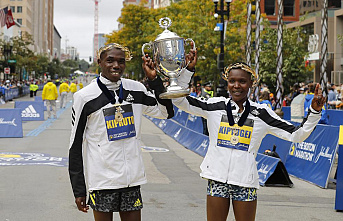Ministers failed to question scientific advisors' recommendations, which led to a dangerous level of groupthink that made them dismiss more aggressive strategies in East and Southeast Asia. This was according to a joint report by the House of Commons science and health committees. The lockdown was ordered by Prime Minister Boris Johnson, Conservative government, after the National Health Service in Britain was at risk of being overwhelmed by rapidly increasing infections.
The report stated that there was a desire not to lock down due to the enormous harm it would cause to society, the economy and normal health services. "In the absence other strategies like rigorous case isolation, a meaningful check-and-trace operation and robust border controls, full lockdown was inevitable. It should have happened sooner."
The U.K. Parliament report is released amid frustration at the timeline for a formal public inquiry about the government's response COVID-19. Johnson claims that it will begin next spring.
The inquiry, according to lawmakers, was launched to discover why Britain performed "significantly worse than" other countries in the initial days of the pandemic. This would allow the U.K. to improve its response to COVID-19's ongoing threat and prepare for future ones.
50 witnesses testified to the 150-page report, which includes former Health Secretary Matt Hancock as well as Dominic Cummings, an ex-government insider. It was unanimously approved in Parliament by 22 members representing the three largest parties: the Conservatives, the Labour Party and Scottish National Party.
Committees praised the government for its early focus on vaccines and decision to invest in vaccine research. These decisions were the catalyst for Britain's success inoculation program. Nearly 80% of all people aged 12 and older are now fully vaccinated.
The committees stated that "millions of lives will be saved because of the global vaccination effort in which U.K. has been a leader"
They also criticised the government's Test-and-Trace program, saying that its slow, uncertain, and often chaotic performance hindered Britain's response.
The report stated that the government's initial strategy for the crisis' first three months was based on official scientific advice. It was based on the fact that limited testing capabilities meant widespread infection was likely; that no vaccine was available immediately; and that the public would not accept a prolonged lockdown. Instead of trying to stop the spread of the virus entirely, the government aimed to manage it.
This was described in the report as a "serious error" made by the U.K. with many European and North American countries.
The committees stated that accountability in a democracy is dependent on elected decision-makers not only taking advice but also questioning, challenging, and challenging it before they make their own decisions. "It was a rapidly changing environment, and given the high number of deaths, it was surprising that the initial fatalistic assumptions about the inability to suppress the virus were not challenged. It was clear that the NHS would be overwhelmed."
Trish Greenhalgh is a professor of primary health care at the University of Oxford. She said that the report "hints" at a less than healthy relationship between the government and scientific bodies. Despite COVID-19 still causing the deaths of hundreds of people each week in Britain, advisory boards continue to debate what evidence is sufficient to make a decision.
"Uncertainty" is the defining characteristic of crises ...," Greenhalgh stated. "Dare you replace 'following science' with?deliberating about what to do when the problem becomes urgent, but certainty is elusive? The report suggests that we cannot continue repeating the past mistakes unless we do so.
Cummings and Hancock, both senior officials, told the committees that they were hesitant to challenge scientific consensus.
Hancock stated that he was unable to press for widespread testing of COVID-19-positive people as soon as Jan. 28, 2020 because of the fact that scientific advisors had said it would not be beneficial.
He testified that although there was no hard evidence to support the global scientific consensus over decades, he had an intuitive feeling that it was. "I regret deeply that I didn't overrule that scientific opinion."











